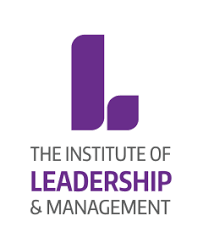Have you ever pondered the term ’emotional intelligence’ and considered its implications for your professional life? Perhaps, during periods of emotional instability; however, do not discount the notion that this term could prove useful for success in any field.
Have you ever experienced an intense moment at work when you’ve struggled to maintain composure? Perhaps, it was triggered by a colleague’s inconsiderate behaviour; however no matter how exasperating it may be – don’t let these moments derail your trajectory as an effective leader!
If you are lacking in emotional intelligence (EQ), don’t despair! With the right strategies and actions, it’s possible to improve your capabilities.
1. Self-Awareness
Are you cognisant of the emotions that are influencing your conduct? Are you aware of whether your reactions are spur-of-the-moment or premeditated – and do they accord with the situation at hand?
Even so, it certainly is a good idea to gauge how you’re feeling prior to engaging in any activity – not only will this help prevent regrets later on but also demonstrate self-awareness! In fact, recent research has even identified such an approach as being associated with better performance.
To be effective, ensuring that we can identify our feelings is essential. Through regular reflection, we can gain greater insight into our own moods and adjust accordingly; this in turn could allow us to make more informed decisions about when to act and when not to act.
2. Self-Control
Self-control is crucial to successfully navigating the workforce. Whether you’re experienced or new at this game, it is essential that you master your ability to regulate your emotions.
In light of this knowledge, it can become increasingly frustrating if one experiences excessive stress or anxiety. Fortunately, there are numerous means at our disposal for relieving this pressure; from implementing practical strategies such as meditation and journaling to taking regular breaks while remaining in the moment – all these actions serve to help manage an inner tumult. Ultimately, it is up to each individual in order to find their own way towards alleviating distress through these methods!
3. Self-Esteem
If you do not possess a robust sense of self-esteem, it is likely that others will never give you credit for your achievements – or even recognise them. When this happens, people who have low self-esteem often allow their circumstances to determine how well they perform at work; conversely those with high levels of esteem take pride in delivering top performances regardless of external factors.
Unhealthy Self-Esteem can impair one’s ability to effectively manage emotions and thus impact one’s success in life. Consider, for instance, the torment experienced by individuals who are excessively envious or angry – which typically accompanies their interactions with peers. On the other hand, successful individuals use their elevated self-esteem to remain calm when faced with adversity as opposed to succumbing to such emotions.
4. Social Awareness
Social awareness is a crucial component of emotional intelligence, and it’s essential for building rapport with others.
Social awareness allows you to perceive how your words and actions could potentially be received by those around you. This can help prevent faux pas, awkward encounters or even potential conflict within an organisation – all of which could lead to unfavourable outcomes for everyone involved!
Though maintaining discretion can be difficult at times, it is indispensable in one’s capacity as a leader. If you want to foster trust with subordinates, then it is imperative that you observe social norms; such as etiquette and respectful behaviour. By conforming to established standards when interacting with colleagues while also demonstrating warmth towards co-workers – this demonstrates a profound sense of maturity and practicality when dealing with others!
5. Resilience
Resilience is a potent source of emotional intelligence, but it must be cultivated regularly if it is to remain effective. This requires an awareness and willingness on your part to approach situations as they arise rather than bottling up your feelings – which can result in additional stressors for one’s daily routine.
Becoming resilient does not mean you should never feel any type of emotion; instead, it means that you can successfully navigate life’s setbacks with poise. The key is recognising the difference between fleeting emotions like anxiety and fears versus longer-lasting ones such as depression or grief – and responding appropriately.
6. Emotion Regulation
For some of us, our emotions can run unchecked in the workplace. This can lead to situations where we overreact to situations and/or have difficulty managing such emotions.
Properly regulating your emotions is essential for success at work. You can accomplish this by identifying how you’re feeling and understanding why and developing an action plan for coping with any negative feelings (e.g., finding hobbies that provide a sense of escapism).
When you effectively manage your emotions, you don’t just keep them under rigid control; instead you expose them to what’s happening around you and then consider their reaction before making any rash decisions.
By acknowledging your emotions and expressing them in appropriate ways, it will be easier for others to connect with you as well as gauge how they should respond to these displays of affection.
7. Cultural Sensitivity
Are you sensitive to other cultures’ differing norms and expectations? While this might not be an aspect of EQ that everyone possesses, it is imperative for success in business. If you can navigate situations successfully with people from other backgrounds, this will yield tremendous benefits when dealing with colleagues and employers alike.
Indeed, the more empowered people perceive themselves to be, the less likely they are to relinquish control over their working lives. This can result in higher productivity levels and greater satisfaction among employees; thus making them more likely to stay on board!
In Closing
The emotional intelligence tips discussed above are essential in developing an effective management style. Don’t forget to equip yourself with them along with the capabilities and knowledge necessary!
In order to create a more harmonious workplace, be it at home or at work – where co-workers can feel comfortable communicating constructively with you – strive for emotional intelligence in your dealings with others.
By incorporating these proven strategies into your daily routine, you’ll have a more profound understanding of how to manage colleagues effectively. Ultimately, this could prove quite beneficial as it may even help foster better relationships within your organization!
Conclusion
In order to foster the growth of your team, consider implementing a few of these strategies. They may not be the most effective choice for everyone; however, it is crucial that you listen to and understand your team members’ needs so that they can provide maximum support while taking full advantage of their abilities.












